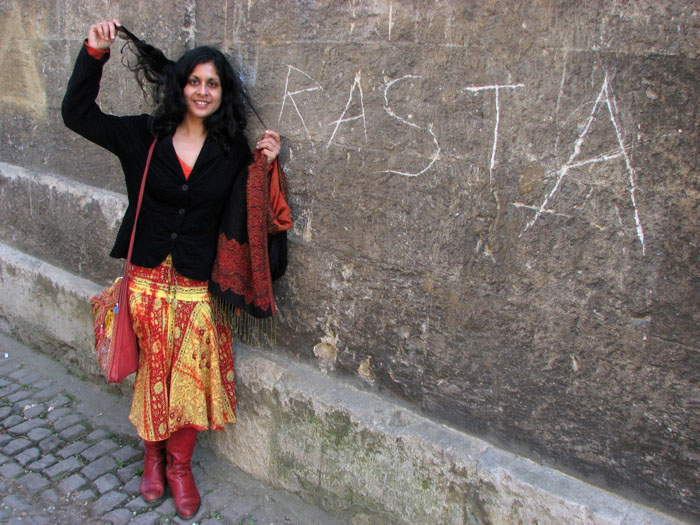It is that time of year when people who bother about such things nudge forward their Nobel Prize predictions and speculations. The Swedish Academy, guardians of what is still considered the world's most prestigious literary prize, will make their announcement on Thursday coming. The academy's secretary made sure appetites (not to mention knives) were properly whetted, with some sour comments about the state of American literature--the Literary Saloon nicely summarises the storm-in-teacup controversy here and here. All in all, a nice opportunity for literary pundits to revive the discussion of a perennially favourite topic, the usefulness of literary prizes, and all possible subsidiary questions.
Since most of my favourite writers are dead, I don't much care who wins the Nobel Prize, and of course we all know that in the end it is the cold and distant eye of posterity that really matters. Nonetheless, in the here and now literary prizes play a hugely important role in what you might call the literary economy, the network of transactions, commercial and otherwise, that transmits books from the heads of writers to the hands of readers. Prizes mean publicity, something few writers and publishers get enough of. And of course there is the money--writers and publishers also have rents to pay and mouths to feed. So on the whole literary prizes are very good things--long may they be funded.
Which is why I barely hesitated when the Commonwealth Foundation asked me a few months ago to be a regional judge for the 2009 Commonwealth Writers' Prize. I've seen how the CWP has helped Caribbean writers, both eminent and newly emerged, to find new audiences around the world. I also thought this might be a good chance for me to catch up on contemporary Caribbean fiction, which I seem to read less and less of. Only after I said yes did I do the mental arithmetic and realise I'd essentially agreed to spend the last third of the year reading a novel a day. I'm a speedy reader, but even so....
Many Antilles readers probably know how the CWP works. Any book-length work of prose fiction by a Commonwealth citizen is eligible--in the case of the 2009 prize, it must be published in the calendar year 2008. For judging purposes, the Commonwealth is divided into four broad regions--in my case, the Caribbean and Canada--from each of which the judges choose two regional winners, in the best book and best first book categories. All the books that win regional awards then go forward to a final pan-Commonwealth judging panel, which chooses the overall winners. It's a generous system, rewarding no fewer than eight writers (not to mention all the shortlistees). The 2009 regional winners will be announced sometime next March, and the overall winners in May.
Michael Bucknor of UWI, Mona--the Caribbean and Canada regional chair--has the hard work of keeping track of all the books as they're sent in by publishers. Pamela Banting of the University of Calgary and myself--the other two judges--merely have to read like the devil and decide which of these dozens of titles are worth pushing forward to the longlist, and which, sadly, will not make the cut. For my own peace of mind--and to ensure I don't manage to overlook a volume should it fall down to the back of the pile--I've decided to keep a sort of log of all the books as they turn up, with the date each arrives, the date I finish reading it, a brief note summarising my first impressions, and a final column in which each book is assigned one of three "grades": YES, NO, or MAYBE.
Earlier this year, for the first time, the Commonwealth Foundation got several of the regional prize-winners, plus one judge and one prize administrator, to blog about their different experiences of the final days of judging. I've decided to post the occasional note about my own experience as a CWP judge here at Antilles. Partly to keep me reading steadfastly--I'll want to be able to report real progress, after all. Partly because I feel the CWP needs more publicity in the Caribbean--in recent years Canadian books seem to have dominated both the regional entries and the shortlists. And, to be truthful, partly because Antilles has been much too quiet of late.
So what progress can I actually report? According to my trusty log, eleven books have arrived thus far (and I expect, perhaps even dread, another package before the end of this week). I've read five. I can't say what they are, of course, but I can tell you there are three NOs, one MAYBE, one YES. The YES is such a YES, I've even put a little asterisk next to it. It's a first book by a young Canadian writer who I've never heard of before, and one of the best things I've read in ages. I can't wait till the judging is over and I can press it eagerly on all my friends.









